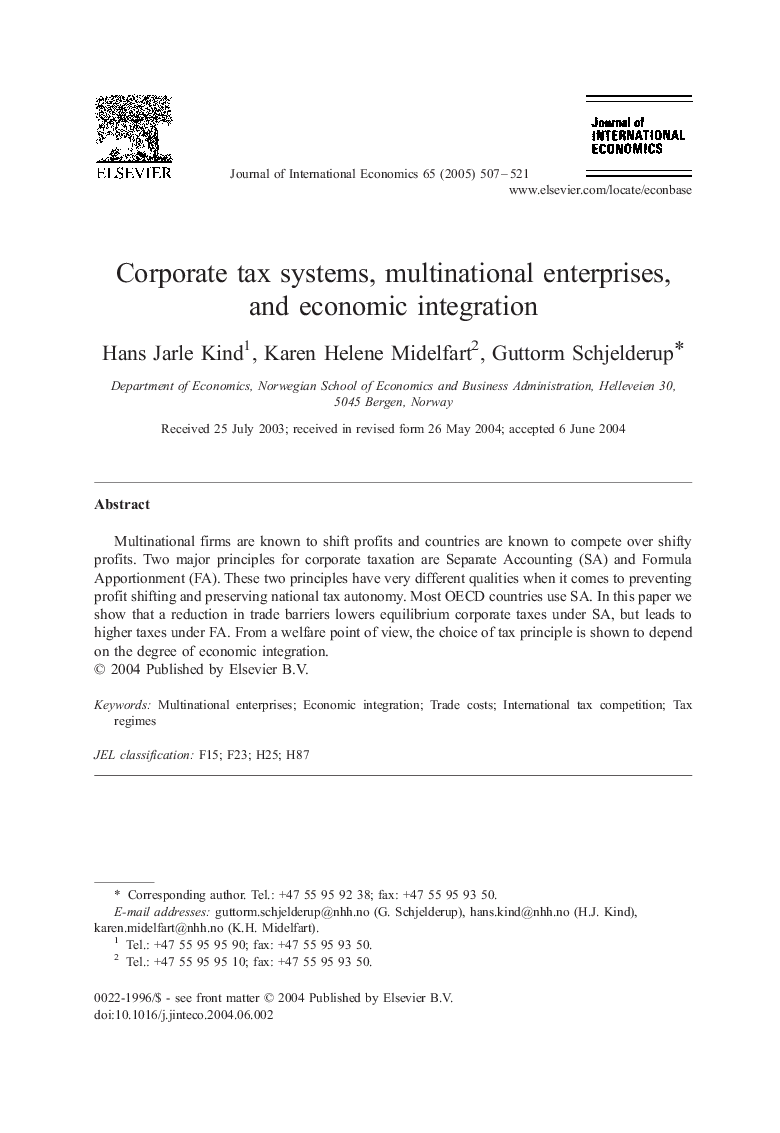| Article ID | Journal | Published Year | Pages | File Type |
|---|---|---|---|---|
| 10477070 | Journal of International Economics | 2005 | 15 Pages |
Abstract
Multinational firms are known to shift profits and countries are known to compete over shifty profits. Two major principles for corporate taxation are Separate Accounting (SA) and Formula Apportionment (FA). These two principles have very different qualities when it comes to preventing profit shifting and preserving national tax autonomy. Most OECD countries use SA. In this paper we show that a reduction in trade barriers lowers equilibrium corporate taxes under SA, but leads to higher taxes under FA. From a welfare point of view, the choice of tax principle is shown to depend on the degree of economic integration.
Related Topics
Social Sciences and Humanities
Economics, Econometrics and Finance
Economics and Econometrics
Authors
Hans Jarle Kind, Karen Helene Midelfart, Guttorm Schjelderup,
